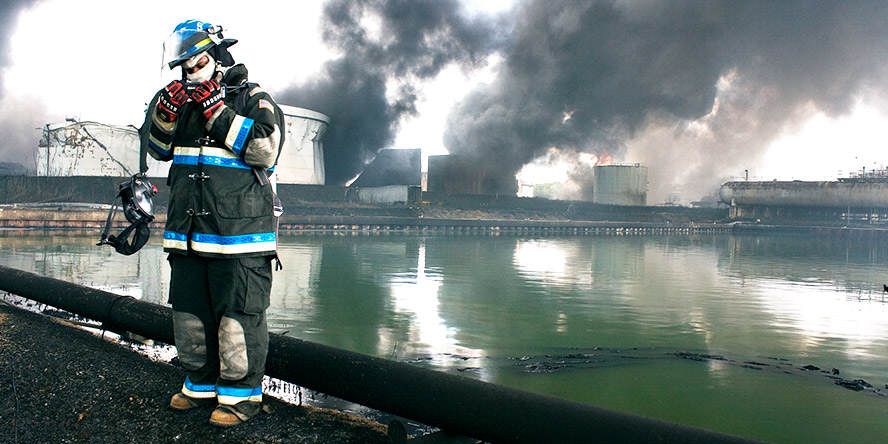Safety of production, transport or storage is just a part of industrial activities, which – with regard to the attention devoted to it by the managers – is secondary to the financial, quality or HR issues. Meanwhile, neglecting or even omitting the issues related to safety, which includes both people and goods or equipment, may suddenly result in a collapse of even the most financially stable company.
Although some dangers and hazards related to the production process or transport are obvious and relatively foreseeable, the most dangerous ones are still treated by the Polish entrepreneurs as “impossible” to occur. This refers mainly to hazards related to dusts, gases or liquid vapours explosions, which bring about very serious consequences. As the specialists convince us, there are a lot of sectors in which the problem of explosion hazard is marginal, but even there vigilance is needed. We have many times observed a situation when suddenly a new semi-product bringing high risk of potential explosion appeared at a production plant. In such situations the employees were either unaware of the hazard or did not know how to handle the hazardous material in order not to expose themselves to the worst consequences, says Bartosz Wolff, CEO of the WOLFF GROUP which has long been dealing with implementing systems and solutions to minimise the risk and consequences of industrial explosions.
Bartosz Wolff adds that still a significant problem among the entrepreneurs and their subordinate staff is the lack of adequate knowledge about products which may pose a hazard. For most people it is obvious that natural gas or gasoline vapours are explosive. Yet, as regards dusts which may also be hazardous, the situation is completely different. Despite the fact, adequate attention is not paid to the danger, he mentions. At the same time he explains that hazardous may even be the most common, household substances like… sugar or flour. Many owners or engineers managing large industrial plants are not aware that the materials used at their factories pose a serious risk. And I do not mean substances with enigmatic names, such as hydrocarbon resin, which may ignite even by a snap of one’s fingers, but such common substances as flour, sugar, wood dust or carbon dust, he explains.
„For most people it is obvious that natural gas or gasoline vapours are explosive. Yet, as regards dusts which may also be hazardous, the situation is completely different. Despite the fact, adequate attention is not paid to the danger.”
Among the sectors most exposed to explosions the experts mention first of all the wood, power or food industries and – which is obvious – broadly understood chemical or petrochemical industry.
Wolff agrees with the common theory that one of the most often errors is underestimation of risk related to the potential hazard. He says that in his contacts with people responsible for safety management at industrial plants a frequent reaction is: “Why, there has been no explosion at our plant for 20 years”. It is hard to fight the logic of such approach, however, similar situation may be found on the road. I have been driving with no accidents in the recent years, yet, when buying a new car I select a model with airbags or ESP system, compares WOLFF GROUP CEO.
„One of the most often errors is underestimation of risk related to the potential hazard.”
There is nothing to better influence the awareness of the scale of risk among the lays than a close experience of a controlled explosion. It has been the strive for raising awareness in the industrial circles that made WOLFF GROUP construct a specimen system in which explosion tests are carried out for various products applied in industry. Lately, such presentations have been made for example at the Fire-fighting Congress held at the National Stadium, and for large concerns such as PGE Group operating in power engineering or Pfeifer & Langen Group, one of the largest sugar manufacturers in Poland.
We have also made tests with cocoa, tea or malted barley applied in the brewing industry. It is extraordinary, what power lies in just several hundred grams of such products, warns Wolff.
The experts emphasise that there is still no reliable statistics in Poland to show the scale of occurrence of uncontrolled explosions in the industrial sector. Many events are concealed by the entrepreneurs, which sometimes results in repeating the same errors. A lot of knowledge regarding the errors made or conclusions drawn from those errors will never see the light. This prevents other companies from repeating such errors, Wolff regrets.
See our explosion shows:
Malted barley, carbon, sugar and tea dusts explosions in open space
Explosion suppression
Sugar dust explosion in a filter protected with a decompression panel; a non-return flap valve was applied in the pipeline thanks to which the explosion consequences have not propagated through the pipeline to the other parts of the system.






